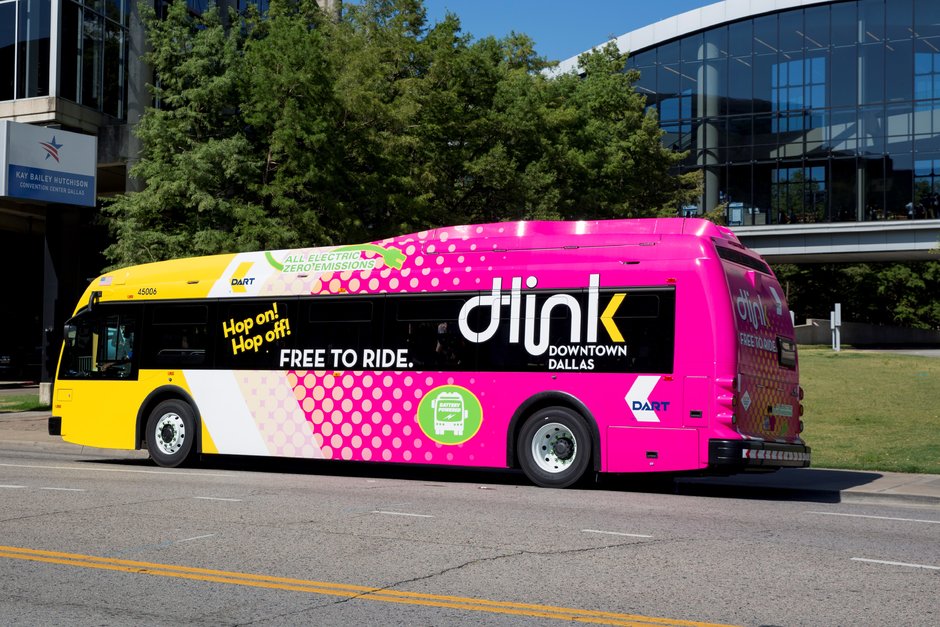
D-Link buses run fully electric for Dallas Area Rapid Transit. Photo courtesy of DART.
It’s time for Texas to hop on the bandwagon, or in this case, the electric bus. The Texas Commission on Environmental Quality (TCEQ) is preparing to distribute funds from the $2.9 billion Volkswagen settlement (for their violation of the Clean Air Act). TCEQ has $58 million available for replacing diesel-powered buses with electric buses. Applications are now open for funding, and Sierra Club is encouraging transit agencies, school districts, and shuttle companies to apply for grants. This is the opportunity to convert to electric bus fleets and have VW foot part of the bill.
A significant impediment to adopting electric bus fleets across the nation is the high sticker price. While the upfront costs may be daunting, electric vehicles will save operators hundreds of thousands of dollars over their lifetime in comparison to conventional buses. Beyond the fuel savings, electric vehicles are easier to maintain and cover more miles between repairs.
Many public transportation systems rely on aging buses that become less efficient over time. Electric buses use rechargeable on-board battery packs and go between 55-350+ miles between charges depending on the model. In conventional buses, diesel exhaust from tailpipe emissions is a known carcinogen and increases other health risks like asthma. Urban air quality can be considerably improved by electric buses as they reduce greenhouse gases such as nitrogen oxide and carbon dioxide.
In addition to the obvious environmental benefits, making the switch to electric vehicle fleets will also spur the national economy. There are a number of domestic manufacturers, so jobs can be created here. Electric buses will help us achieve independence from oil, directing our economy to a safe, reliable, and innovative future in green energy.
Major cities such as Los Angeles, New York, and Seattle have already made arrangements for public transit systems to be fully-electric within the next 10 years. This is a common-sense solution that would greatly benefit urban areas and their residents. As use of electric buses becomes more widespread, the manufacturing prices will fall and battery and charging technology will improve. Public transportation is something that benefits everyone. It increases mobility, allowing people to frequent more local businesses and spur the economy, and reduces traffic and greenhouse gas pollution. Zero emission buses are heading in the right direction, and we should all be able to follow with the help of VEMP grants. Now is the time to embrace new technologies in the climate change fight.
Learn more about the Volkswagen Environmental Mitigation Program here!